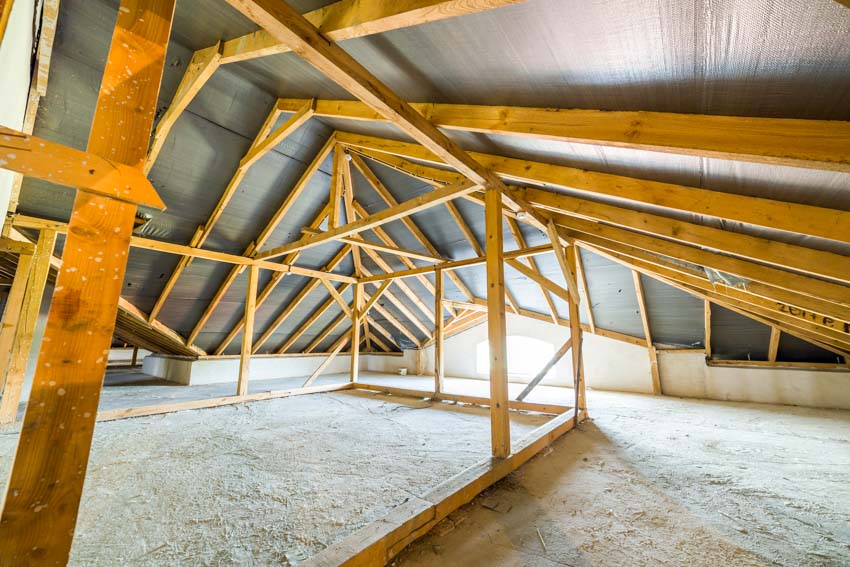In today’s world, maintaining a healthy living environment is more important than ever, and understanding how attic insulation improves air quality can significantly contribute to this goal. Homeowners across the globe are beginning to realize the profound impact of proper insulation not just on energy savings, but also on indoor air quality. Whether you’re concerned about reducing allergens or just looking to breathe a little easier, investing in adequate attic insulation can be a game-changer.

Understanding Attic Insulation
What is Attic Insulation?
Attic insulation refers to the materials used to reduce heat loss or gain in your attic. It acts as a barrier to the heat flow and is essential in maintaining an efficient, effective home environment. Types of insulation can vary, but commonly include materials like Fiberglass, Cellulose, and Spray Foam.
Why is Attic Insulation Important?
Proper attic insulation is important because it helps regulate your home’s temperature, reduces energy bills, and improves overall indoor air quality. The U.S. Department of Energy states that a properly insulated attic can save homeowners 10-50% on their energy bills.
Types of Insulation
Fiberglass: This is the most common type of insulation, known for its durability and affordability.
Cellulose: Made of recycled paper, it’s eco-friendly and effective in covering spaces.
Spray Foam: Known for its excellent air-sealing properties, although it tends to be more expensive.
Impact of Insulation on Air Quality
How Attic Insulation Affects Air Quality
The way attic insulation improves air quality is multifaceted. Insulation prevents outdoor pollutants, allergens, and moisture from entering your home, creating a cleaner, healthier atmosphere. Good insulation ensures that the air inside your home is separate from the air outside, reducing infiltration of unwanted particles.
Mold and Mildew Prevention
Mold spores are a common allergen and can lead to respiratory issues. Proper attic insulation helps manage moisture levels, thus preventing mold and mildew growth. Preventing musty odors commonly associated with mold is another benefit.
Temperature Consistency
Consistent temperatures are crucial for air quality. Proper insulation ensures that temperature swings are minimized, keeping your home comfortable and air quality high.
Energy Efficiency and Environmental Impact
Saving Money with Attic Insulation
By reducing the need for heating and cooling, insulation lowers energy bills. The environmental impact is also noteworthy, as lower energy use means a smaller carbon footprint.
Reducing Environmental Impact
With global concerns over climate change, the importance of improving energy efficiency has never been greater. Proper attic insulation reduces the need for excessive heating and cooling, thus lowering your home’s carbon emissions.
Choosing the Right Insulation
Consider factors such as insulation type, cost, and ease of installation. Each has its pros and cons, and the choice will depend on your specific needs and budget.
Installation and Maintenance
Installing Attic Insulation
While installing attic insulation can be a DIY project, many homeowners choose to hire professionals. This ensures that the insulation is correctly installed and maximizes its effectiveness.
Maintaining Insulation
Regularly checking your insulation for damage or wear is important. This might involve attic cleaning to ensure no rodents or pests have disturbed the insulation. Consider annual check-ups and address any issues immediately.
Health Benefits of Improved Air Quality
Reducing Allergies and Respiratory Issues
Improved air quality means fewer allergens like dust mites, pollen, and mold spores. This can significantly reduce asthma and allergy symptoms.
Overall Health and Well-being
Breathing clean air impacts overall health positively. It means better sleep, improved mood, and even increased concentration levels.
Long-term Benefits of Quality Insulation
Increased Property Value
Proper insulation not only reduces energy costs but can increase home value. A well-insulated home is attractive to potential buyers.
Extended Lifespan of Home Systems
By maintaining consistent temperatures and reducing strain on HVAC systems, insulation can extend their lifespan, saving money on repairs and replacements.
Common Misconceptions
Myths About Insulation
One common myth is that only old homes need new insulation. In reality, even newer homes can benefit from upgraded insulation for optimal performance.
Understanding Insulation R-Values
The R-Value measures insulation’s ability to resist heat flow; higher values equate to better performance. It’s essential to understand this when choosing insulation.
Conclusion
Investing in proper attic insulation is not only about comfort and energy savings but plays a significant role in improving the air quality of your home. It ensures a healthy, efficient, and environmentally friendly living space. Whether you’re addressing current issues or taking preventative steps, understanding how attic insulation improves air quality is fundamental for any homeowner.

FAQ Section
What is the best type of insulation for attics?
There are several excellent options including fiberglass, cellulose, and spray foam. The best choice depends on your specific needs and budget.
How often should attic insulation be replaced?
Insulation can last many years, but it’s important to check it regularly for signs of wear and tear and replace it when necessary.
Does attic insulation impact my energy bills significantly?
Yes, proper attic insulation can reduce energy consumption by helping regulate temperature, which leads to lower energy bills.
This article contains affiliate links. We may earn a commission at no extra cost to you.






